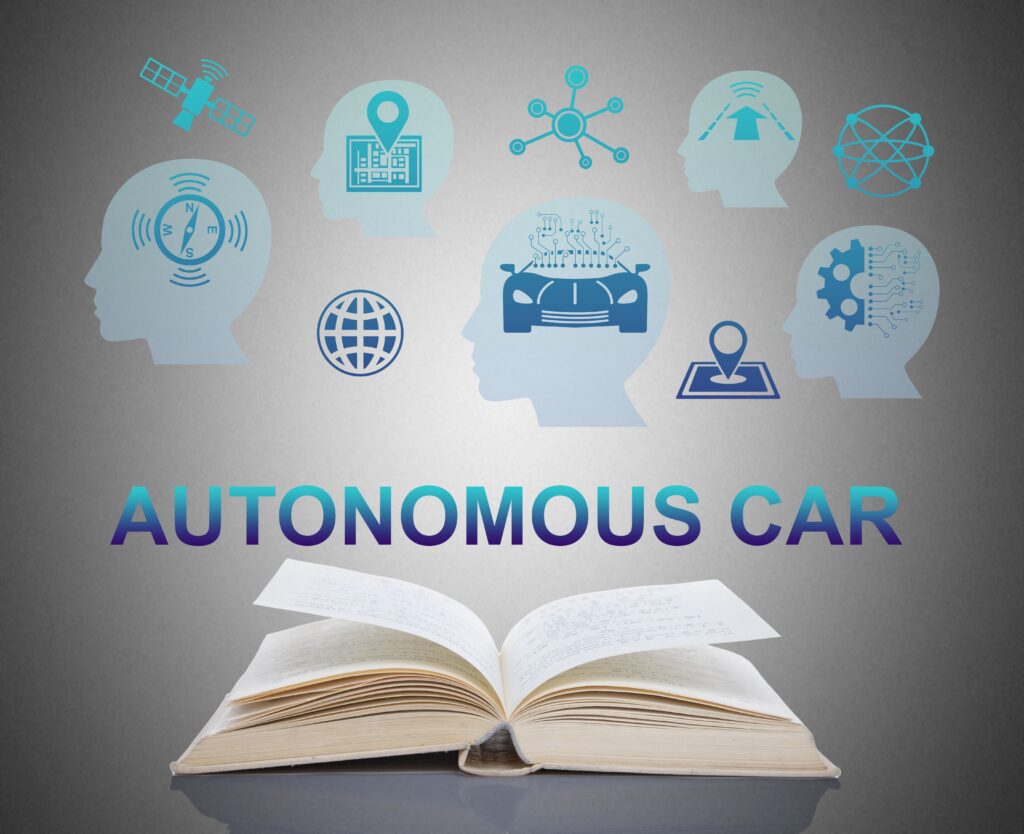Blog
Education of future specialists in the field of automated and autonomous vehicles
The implementation of automated and autonomous vehicles affects the demand – from the automotive industry – for employees with specific competences, especially in the area of technology and software. In the era of developing new technologies, the skills possessed today will not be sufficient in a few years. In Poland, the education of future specialists in the field of automated and autonomous vehicles is not carried out on such a large scale as in other countries. However, the situation is dynamic and evolves with the development of business needs. It is assumed that the demand for employees in professions related to IT, mechatronics, data protection or advanced data analysis will increase. The skills required to work for the production and operation of autonomous vehicles include: knowledge of programming in C, C++, Python, knowledge and skills in image processing, artificial intelligence and machine learning, as well as electrical engineering and design skills. Knowledge of software and hardware will be necessary in the transport industry, as well as the ability to manage e.g. fleets of autonomous vehicles.
It is expected that the so-called physical competences will be less needed than at present, while the demand for employees who will be able to both operate devices and have knowledge in the field of robotics will increase. Office workers in this industry will require the ability to think analytically, associate facts, creativity and, above all, the ability to work in a team.
The current level of development and implementation of autonomous vehicles in Poland still requires many years of work and that is why it is so important to educate specialists who will contribute to overcoming the barriers related to their implementation. It is important that the next generation of employees is educated in the skills that will soon be in demand on the labor market, therefore it is necessary to expand the offer of educational programs that will enable today’s students and employees from various fields to focus their knowledge, skills and competences on the development of modern transport solutions .
As part of the AV-PL-ROAD project, a consortium consisting of Motor Transport Institute, Warsaw University of Technology and Ministry of Infrastructure developed guidelines for the education of qualified technical and managerial staff in the field of automated and autonomous vehicles [8]. The inspiration was the experience of advanced research and scientific and didactic centres, and the accumulated knowledge contributed to the creation of the “Autonomous vehicles and autonomous transport systems” specialty at the Faculty of Transport of the Warsaw University of Technology, at the second degree of full-time master’s studies [6]. In addition, at the Warsaw University of Technology, at the first degree of engineering, a specialty called “Modern technologies in road transport” was created, thus meeting the demand for specialists in this field [5].
A manual has also been developed “Autonomous vehicles and autonomous transport systems”, a compendium of knowledge for students of first, second and third degree studies and postgraduate studies in fields related to transport, mechatronics, for specializations emerging at technical universities dedicated to autonomous vehicles and autonomous transport systems. It was the first book on the Polish market, published in 2020, on autonomous vehicles and autonomous transport systems [7].
Many Polish universities, recognizing the need to educate future specialists in the field of automated and autonomous vehicles, also launch courses of study dedicated to this subject. Each such initiative inspires optimism. For example, in the coming academic year, new postgraduate studies “Software in Automotive for modern mobility – Digitization in Automotive” will be launched by the Faculty of Mechanical Engineering of the Silesian University of Technology. The studies will enable the acquisition of knowledge, skills and competences enabling an extended understanding of the issues of the automotive industry, with particular emphasis on digitization and software of modern motor vehicles, as well as autonomous driving systems, or the digital environment of the vehicle and modern mobility [2].
The Faculty of Automatic Control, Electronics and Computer Science of the Silesian University of Technology offers an interdisciplinary specialty at the master’s degree “Intelligent Autonomous Platforms“, directly related to the automation of means of transport. By choosing this major, students have the opportunity to learn about the latest achievements in the field of autonomous vehicles, remote control, construction of both terrestrial and flying drones. The studies include knowledge related to IT systems used in support systems and autonomous vehicle control, as well as knowledge and skills necessary to design and build autonomous driving platforms and autonomous aircraft. The study program also includes subjects related to safety and legal regulations for the use of unmanned aerial vehicles and autonomous platforms [1].
“Robots and Autonomous Systems” is a specialization of master’s studies conducted by the Institute of Robotics and Machine Intelligence of the Poznań University of Technology in the field of Automation and Robotics. This specialization allows to gain qualifications in the field of robotics, programming, machine learning and autonomous systems [3].
Master’s studies in the field of transport with the specialty: “Autonomous vehicles, e-mobility and intelligent systems in transport” are offered by a non-public higher education institution – Helena Chodkowska University of Technology and Economics in Warsaw [4].
The presented, selected proposals for educating specialists in the field of automated and autonomous vehicles are only an example and do not constitute an exhaustive list of the offer of universities in Poland, however, they may become an incentive for people interested in improving their qualifications to look for interesting fields of study and benefit from the ever-growing and more varied offer of domestic universities, aimed at the needs of one of the most developing and prospective branches of the economy, which is the automotive industry, which takes into account the needs of modern mobility.
Źródło:
[1] https://www.polsl.pl/rau/mgr-inf-spec-inteligentne-platformy-autonomiczne-ipa/
[2] https://www.polsl.pl/rmt/oprogramowanie-w-automotive-dla-wspolczesnej-mobilnosci-cyfryzacja-w-automotive/
[3] https://risa.put.poznan.pl/
[4] https://www.uth.edu.pl/oferta-studiow/magisterskie/transport
[5] https://www.wt.pw.edu.pl/index.php/Kandydaci/Studia-I-stopnia/Opis-specjalnosci/Nowoczesne-technologie-w-transporcie-drogowym
[6] https://www.wt.pw.edu.pl/index.php/Kandydaci/Studia-II-stopnia/Opis-specjalnosci/Pojazdy-autonomiczne-i-systemy-transportu-autonomicznego
[7] Choromański W., Grabarek I., Kozłowski M., Czerepicki A., Marczuk K., Pojazdy autonomiczne i systemy transportu autonomicznego, PWN, 2020 (https://ckpap.its.waw.pl/2020/04/15/pojazdy-autonomiczne-i-systemy-transportu-autonomicznego/).
[8] Grabarek I., Kozłowski M., Czerepicki A., Bęczkowska S., Zysk Z., Przygotowanie ramowych rozwiązań organizacyjno-prawnych do wdrożenia pojazdów zautomatyzowanych i autonomicznych w Polsce. Katalog potrzeb, barier i wytycznych dla potrzeb kształcenia wysoko wykwalifikowanych kadr technicznych i managerskich w zakresie CAD w Polsce, Dokumentacja z zadania 6 projektu AV-PL-ROAD, zasoby własne ITS.


